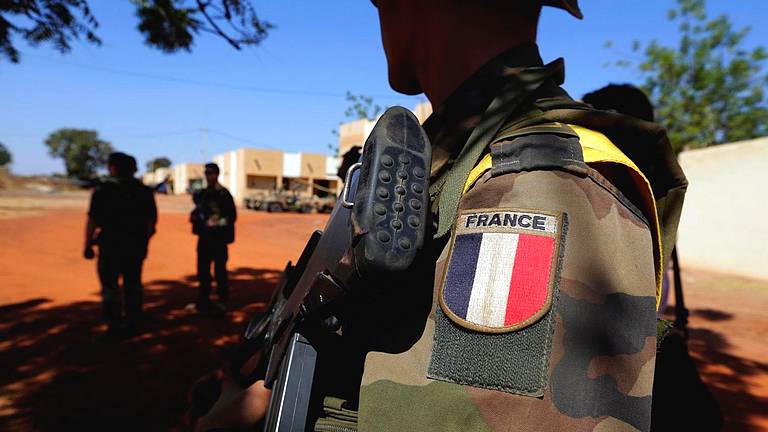France’s Withdrawal: Redefining Geopolitical Dynamics in West and Central Africa
Farouk Hussein Abu Deif, Political Researcher specializing in African affairs
2/7/20253 min read


West Africa and the Sahel are experiencing a period of significant geopolitical transformation as France recalibrates its military presence across the region. Following withdrawals from Mali and Burkina Faso, France has announced plans to pull its troops from Chad, Senegal, and Côte d'Ivoire, moves widely interpreted as a response to growing local and regional criticism of what is often perceived as a "neo-colonial" military presence. These withdrawals reflect a broader reassessment by Paris of its role in the African Sahel, particularly in light of escalating security challenges, the proliferation of armed groups, and the perceived failure to achieve lasting stability.
This strategic shift coincides with the increasing influence of Russia, particularly through the Wagner Group, which has positioned itself as a security alternative for African nations. Additionally, China continues to expand its economic and diplomatic footprint across the continent, further reshaping the geopolitical landscape.
Chad: A Historic Turning Point
The French military withdrawal from Chad marks a historic moment in the decades-long relationship between the two countries. Chad's decision to terminate its military agreement with France, deeming it "outdated," underscores the shifting regional dynamics. While Chad has emphasized that this decision does not signal a severing of diplomatic ties, it opens the door for a redefinition of the partnership based on Chad's national priorities. As French influence wanes, the question remains whether Chad will turn to Moscow for military and intelligence support, potentially reshaping strategic alliances in a volatile region. Several factors contributed to Chad’s decision, including growing anti-French sentiment, the desire to strengthen national sovereignty, and concerns about the effectiveness of French support in addressing security threats.
Senegal: Reassessing Partnerships
Senegal's announcement of the closure of all foreign military bases on its soil, primarily targeting France, reflects a rising tide of popular and political criticism of the French presence. Senegalese Prime Minister Ousmane Sonko's assertion that "sovereignty is incompatible with the presence of foreign military bases" encapsulates the growing sentiment for greater independence. While France aims to reduce its military presence in Senegal, it has expressed a willingness to offer defensive training and targeted military support. This shift aligns with Senegal's efforts to diversify its military partnerships, including strengthening cooperation with countries like Turkey and China.
Côte d'Ivoire: A Coordinated Withdrawal
The planned withdrawal of French forces from Côte d'Ivoire marks another significant development in the region. Ivorian President Alassane Ouattara's announcement of a "coordinated and organized withdrawal of French forces" underscores the country's desire to redefine its relationship with its former colonial power. While France has maintained a strong military, diplomatic, and economic presence in Côte d'Ivoire, the decision to hand over the French military base in Abidjan to the Ivorian army signals a new chapter in the two countries' relationship. This shift reflects a broader trend across West Africa, where nations are seeking greater control over their security affairs and re-evaluating their relationships with former colonial powers.
Implications and Challenges
The withdrawal of French forces from these key African nations carries significant implications for regional security, bilateral relations, and economic stability. As these countries seek to strengthen their national sovereignty and diversify their international partnerships, they face the challenge of maintaining stability and addressing security threats in a complex and evolving geopolitical landscape. France, meanwhile, must adapt to these shifts by forging new partnerships and focusing on long-term strategic cooperation, while respecting the sovereignty and aspirations of its African partners.
The Rise of Calls for Western Withdrawal from Africa
These decisions are occurring amidst a growing popular demand to end foreign military presence in these countries, driven by an increasing sense of national sovereignty and a desire to break free from the colonial legacy. However, public opinion remains divided. Some view the withdrawal as a positive step towards strengthening the country's independence, while others fear potential negative security repercussions.
Key Takeaways:
France is reducing its military footprint in West and Central Africa, responding to local pressures and geopolitical shifts.
The rise of Russia and China presents new dynamics in the region.
African nations are seeking to diversify their partnerships and assert greater control over their security affairs.
Maintaining stability and addressing security threats remain critical challenges.
The shifting geopolitical landscape in West and Central Africa presents both opportunities and challenges for the region. As France reconfigures its military presence and African nations assert their independence, the future of the region will depend on their ability to navigate these complex dynamics and build strong, sustainable partnerships that promote peace, security, and prosperity.
Download the full report here.
Empowerment
Amplifying African voices for sustainable progress together.
Contact US
Growth
Street No. 3281, N'Djamena, Republic of Chad.
© 2024. All rights reserved.